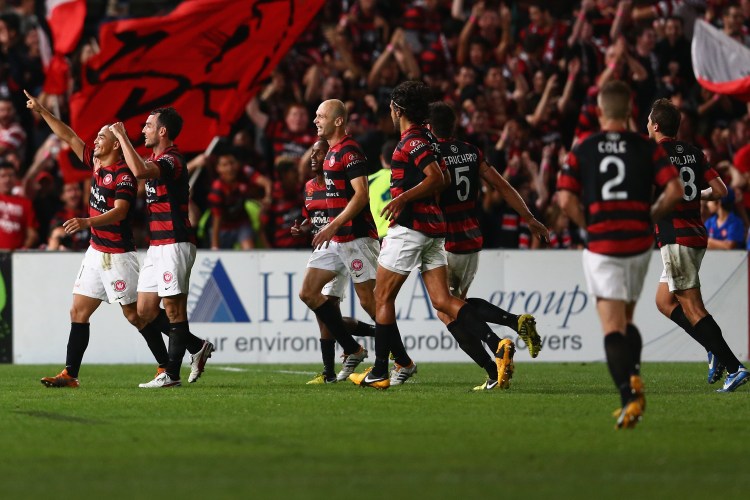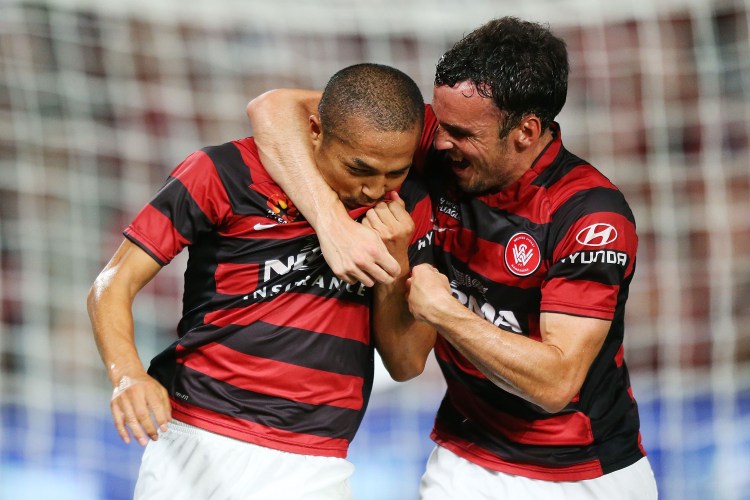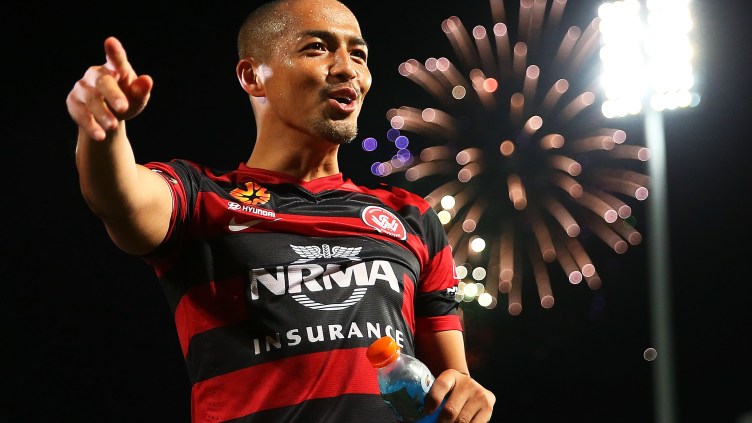As Japanese star announces his retirement, this is why he was pivotal to the Isuzu UTE A-League for two years writes Tom Smithies.
Just about the only thing that Shinji Ono did in a rush was sign for Western Sydney Wanderers. The rest of it was always played on his terms, played at his pace, and the result was a highlights reel like few others.
The news of the Japanese star’s impending retirement from football comes exactly 11 years since it was announced that the A-League’s new club had pulled off quite a coup before even kicking a ball. Initially there was no budget for a marquee as what was then Football Federation Australia put together a new club in Western Sydney inside six months – but then Sydney FC signed Alessandro Del Piero, and Newcastle unveiled Emile Heskey.
The rapturous reception, for ADP in particular, caused FFA chair Frank Lowy to change his mind and sanction the signing of a star name for the Wanderers. Michael Ballack was put forward but his reputation as a team player (or rather as not a team player) left head coach Tony Popovic cold. Instead Popovic, having played in the J-League himself, leapt at the unexpected opportunity to secure Ono, a veteran of 56 games for Japan and much European experience.

Like his new team, Ono began cautiously, finding his way (and his fitness) just as Popovic’s team was doing. After nine games they had won three, and Ono was yet to score – though there were increasing flashes of his vision, his passing and his sheer technique. Then his team earned a penalty in the dying moments of a home game against Brisbane in Round 10, Ono converted it and a remarkable run began – for player and club.
By the end of the season Ono had eight goals, just about every one of them making you sit up and often celebrated with his tongue sticking out, and his team had reached the grand final in their debut season. At 33 he was the second oldest player, but only three of his teammates played more games.

His English, rudimentary at the start, improved enough for him to conduct interviews in his new second language but a Japanese restaurant at Darling Harbour gave him cultural succour and a limitless supply of sashimi.
Everyone would have their favourite Ono moment from that season (to be strictly accurate, everyone bar Sydney FC fans) – a personal choice would be the goal scored against Melbourne Victory where he played keepie-up with the ball on the edge of the box before sweeping it into the bottom corner. His magisterial strike against Brisbane in the semifinal would run that close, though; all of them big goals in big moments.

If his second season wasn’t quite as prolific personally it still ended with the Wanderers in the grand final – albeit losing again – and having qualified from the group stage of the Asian Champions League. Desiring to be close to his family, though, Ono had already announced that he would return to Japan after that 2014 A-League Grand Final.
Those two seasons will always define him as a Wanderers legend, no matter how much history the club accrues over years and decades to come. Western Sydney changed the landscape of Australian football in the way they launched to instant success, and Ono was a central figure in all of that.
At the end of this season Ono will hang up his boots, but his nickname – Tensai, or genius – will live on, just like all those A-League memories.




